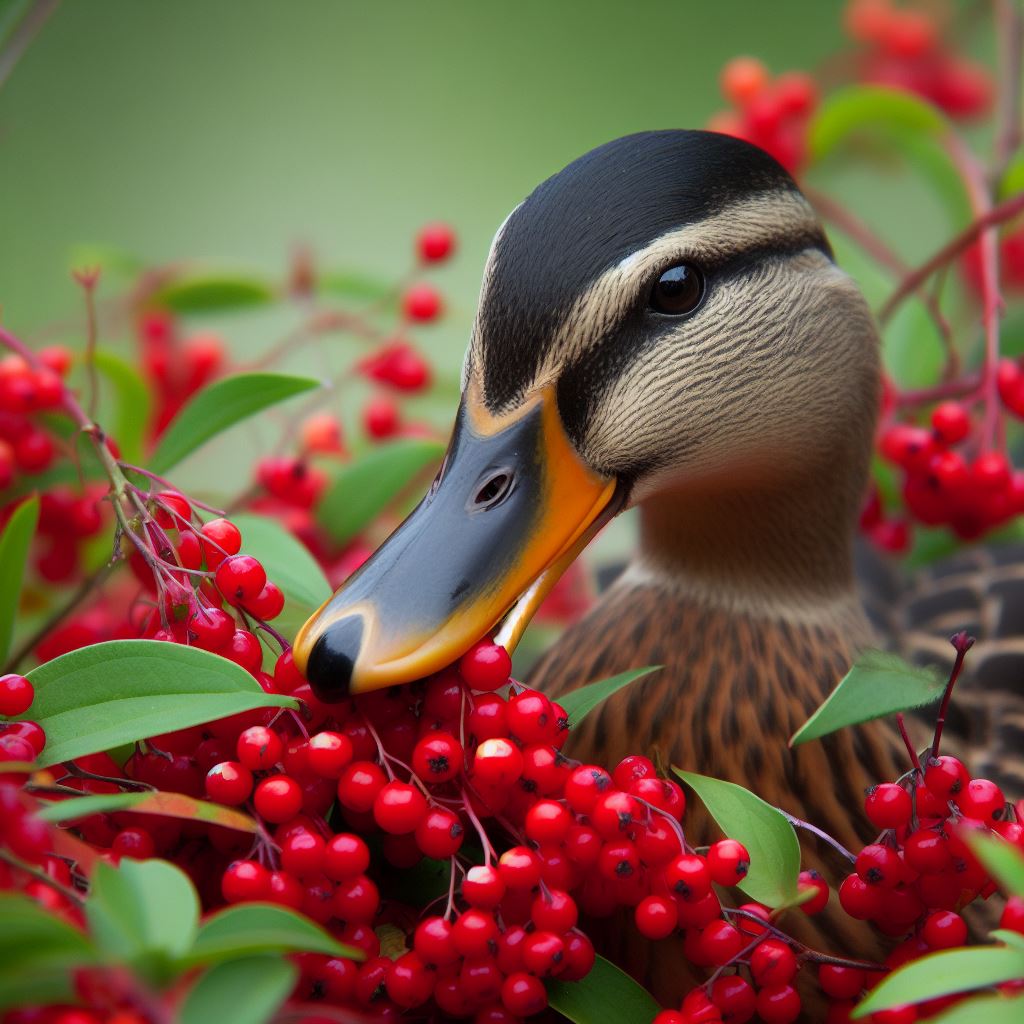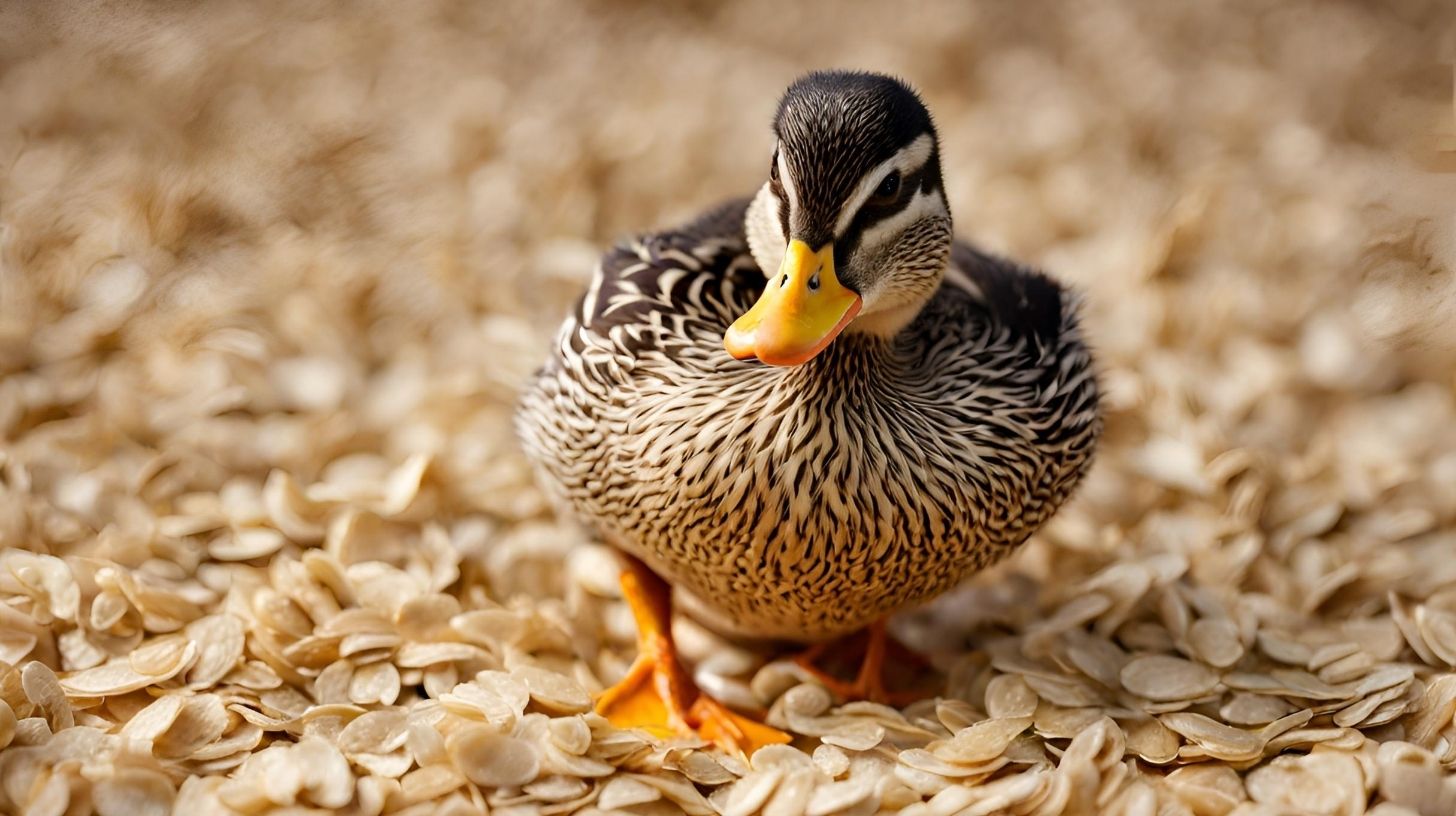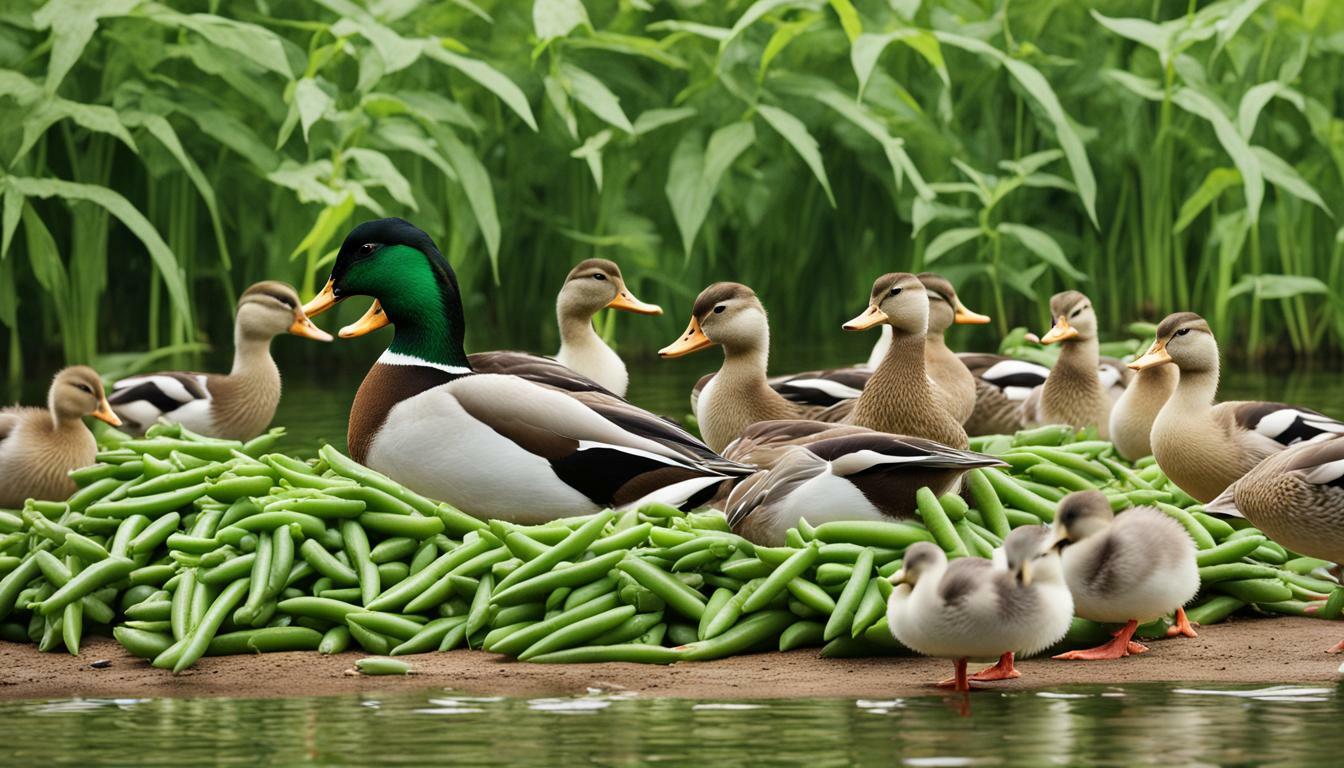Can Ducks Eat Honeysuckle?

Table of content:
Can ducks eat honeysuckle? Yes, ducks can eat honeysuckle in moderation. The berries provide antioxidants and nectar offers natural sugars.
Honeysuckle is a flowering vine that produces sweet nectar loved by hummingbirds, bees, and other pollinators. Its twining stems and showy, tubular flowers in shades of white, yellow, pink, orange, red, and purple add beauty and fragrance to landscapes.
There are around 200 species of honeysuckles, including both native and invasive types. Some common varieties include:
- Japanese Honeysuckle – An aggressive invasive known for its sweetly fragrant white and yellow flowers. Native to eastern Asia.
- Coral Honeysuckle – A native vine with scarlet tubular blooms that hummingbirds adore.
- Trumpet Honeysuckle – Features vibrant orange-red flowers frequented by hummingbirds.
- Amur Honeysuckle – An invasive bush honeysuckle with white and pink flowers.
Honeysuckle blooms during spring and summer, producing red or orange berries in late summer and fall. All parts of the honeysuckle plant contain glycosides, which can cause upset stomachs if eaten in excess. The colorful berries contain carotenoids, important antioxidants.
Are Honeysuckles Toxic to Ducks?
In small quantities, honeysuckle berries and nectar are not toxic to ducks. However, the leaves, stems, and large amounts of berries may cause diarrhea or digestion issues. This is due to the presence of cyanogenic glycosides and other secondary plant compounds.
Ducks foraging on native honeysuckle vines in the wild may nibble a few berries or slurp some nectar as an occasional treat without problems. But duck owners should be cautious about allowing unlimited access.
Here are some key facts about honeysuckle toxicity for ducks:
- The colorful berries contain carotenoids, which are safe antioxidants. However, the leaves and stems contain potentially problematic glycosides.
- Glycosides can cause gastrointestinal upset if too much is ingested. Diarrhea, vomiting, and other issues are possible.
- Invasive bush honeysuckles, especially Amur honeysuckles, tend to be more toxic than native vine species. Caution is advised.
- The highest concentrations of toxic glycosides are found in the leaves, stems, roots, and unripe green berries. Fully ripe red/orange berries have lower levels.
- Nectar from honeysuckle flowers contains natural sugars that appeal to hummingbirds, bees, and ducks. Small tastes of nectar are not harmful.
- Ducks that overindulge in honeysuckle berries may suffer from diarrhea, vomiting, or other temporary digestive issues as their bodies try to flush out the irritants.
So while honeysuckle is not severely toxic at normal levels, duck owners should enforce moderation. Keep reading for more details on safely offering honeysuckle.
 Offering Honeysuckle Berries to Ducks
Offering Honeysuckle Berries to Ducks
With prudent monitoring, ducks can enjoy honeysuckle berries occasionally as part of a balanced diet. Here are some tips:
- Pick fully ripe red or orange berries. Unripe green berries contain more glycosides. Discard leaves and stems.
- Mash or chop berries and mix them into duck feed. Limit treats to no more than 10% of daily intake.
- Provide berry treats only 1-2 times per week at most. Too much can cause diarrhea.
- Monitor ducks after eating honeysuckle. Reduce portions or frequency if loose stools occur.
- Remove access to honeysuckle bushes or vines if ducks are overindulging and getting sick.
- Offer other duck-safe fruits like grapes, melon, berries, and apples for more variety.
- Ensure ducks have plenty of fresh water to stay hydrated.
The small amounts of carotenoids and natural sugars in ripe honeysuckle berries make them a safe occasional treat for ducks. Just be sure not to overdo it. Moderation is key.
Allowing Ducks to Forage on Honeysuckle
Free-ranging backyard ducks may nibble on honeysuckle naturally while foraging. Here are some tips for safety:
- Monitor browsing time – do not allow unlimited access all day. Restrict treats to an hour or so.
- Remove ducklings and juvenile ducks once initial curiosity wanes. Young birds are most vulnerable.
- Uproot any invasive bush honeysuckles. Cultivate native vines instead of foraging.
- Discourage ducks from eating stems, leaves, and green berries. Guide them towards ripe red/orange berries.
- Provide ample alternative forage like grass, weeds, bugs, slugs, and safe fruits.
- If diarrhea occurs, prohibit honeysuckle foraging for a week. Then restrict time allowed.
- Trim honeysuckle blooms away from duck areas if they are overindulging on nectar.
With supervision, letting ducks lightly forage on honeysuckle is fine. But remove access if they overdo it and have adverse reactions. Monitoring is important.
 Can Ducklings or Baby Ducks Eat Honeysuckle?
Can Ducklings or Baby Ducks Eat Honeysuckle?
Ducklings and juvenile ducks under 6 months should not eat honeysuckle. Their sensitive digestive systems have trouble processing excess glycosides.
Wait until ducks mature before offering small honeysuckle berry treats occasionally. Adolescent ducks 6-12 months can start with just a few berries once a week.
Speak to your avian vet before feeding ducklings any new treats. Stick to starter feed appropriate for young waterfowl. Once adults, they can begin sampling limited honeysuckle berries.
Healthy Alternatives to Honeysuckle for Ducks
While honeysuckle has some benefits, there are healthier treatment options for ducks. Some alternatives include:
Fruits:
- Grapes (chopped)
- Melons like cantaloupe
- Berries like strawberries, raspberries, blackberries (chopped)
- Apples (small diced chunks)
- Citrus like oranges and clementines (no skin)
Vegetables:
- Peas (fresh or frozen)
- Corn kernels (fresh, frozen, or canned – no salt added)
- Green beans (chopped small)
- Carrots (cooked, grated, or shredded)
Grains:
- Cooked rice like brown or wild rice (rinsed)
- Whole grain pasta (rinsed and drained)
- Whole wheat crackers (low salt)
- Oats (cooked)
- Barley (cooked)
Vary treats across food groups for balanced nutrition. Fruits offer Vitamin C while veggies provide Vitamin A. Complex carbs from grains give lasting energy.
Always introduce new foods slowly and watch for reactions. Moderation with treats prevents obesity.
Conclusion
With prudence and moderation, duck owners can safely incorporate limited honeysuckle into their birds’ diets. Being mindful of quantities, access time, and foraging behaviors will allow ducks to enjoy this garden treat while avoiding overindulgence. Monitoring reactions remains key.
Welcome. I’m Adreena Shanum, the proud owner of this website, and I am incredibly passionate about animals, especially poultry. I founded adreenapets.com as a labor of love, stemming from my desire to share my knowledge and experiences with poultry enthusiasts worldwide.




